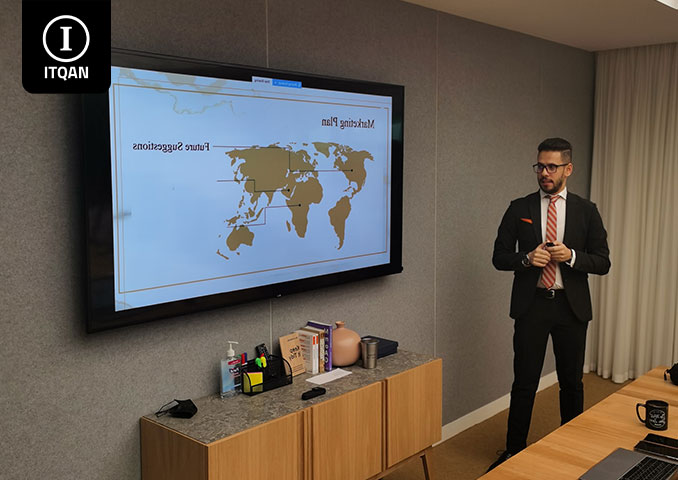The rapid growth of the ecommerce sector has revolutionized the way businesses operate, offering unprecedented opportunities for entrepreneurs to reach global markets from the comfort of their homes. However, venturing into the world of online retail is not without its legal intricacies. One of the foundational steps to establishing a legitimate and successful ecommerce business is obtaining the apply for ecommerce business license. This process not only ensures compliance with local, state, and federal regulations but also builds trust with customers and suppliers.
In this article, we will delve into the essential aspects of ecommerce business licenses, including their importance, the types of licenses required, and the legal prerequisites. We will also provide a step-by-step guide on how to apply for an ecommerce business license, addressing common challenges and offering practical solutions. By the end of this guide, aspiring ecommerce entrepreneurs will be equipped with the knowledge and tools to navigate the licensing process confidently, laying a solid foundation for their online business endeavors.

جدول المحتوى
ToggleUnderstanding Ecommerce Business Licenses
Starting an ecommerce business is an exciting venture, but it comes with its own set of legal requirements. One of the fundamental aspects is securing an ecommerce business license. This section aims to provide a comprehensive understanding of what ecommerce business licenses are, why they are essential, the various types available, and the legal requirements involved.
A. Definition and Importance
An ecommerce business license is an official authorization issued by governmental bodies that allows an individual or company to legally conduct business online. Just like traditional brick-and-mortar businesses, ecommerce businesses must comply with local, state, and federal regulations. Obtaining the proper licenses not only legitimizes your business but also helps avoid legal issues and penalties.
The importance of an ecommerce business license cannot be overstated. It establishes your business as a legitimate and trustworthy entity, which can be crucial for building customer trust. Moreover, it ensures that your business complies with all relevant laws and regulations, thereby minimizing the risk of fines or legal action. In the competitive world of ecommerce, maintaining a compliant and ethical business can also give you an edge over less scrupulous competitors.
B. Types of Licenses
There are several types of licenses and permits that you may need, depending on the nature of your ecommerce business and where you operate. Here are a few common types:
1. General Business License: This is the most basic form of business license, required by most local governments. It allows you to operate your business legally within a specific jurisdiction.
2. Seller’s Permit: Also known as a sales tax permit, this license allows you to collect sales tax from customers. It is typically required if you sell tangible goods.
3. Home Occupation Permit: If you are running your ecommerce business from home, some localities require this permit to ensure your business activities comply with zoning laws.
4. Professional and Trade Licenses: Depending on what you are selling, you might need specific licenses. For example, selling food or health products often requires additional certifications.
5. Federal Licenses: Certain types of businesses, such as those selling firearms or alcohol, require federal licenses.
C. Legal Requirements
The legal requirements for obtaining an ecommerce business license can vary widely depending on your location and the nature of your business. Generally, the process involves several steps:
1. Business Structure: Determine your business structure (e.g., sole proprietorship, LLC, corporation) as this will affect the type of licenses you need and the application process.
2. Business Name Registration: Ensure your business name is registered and not already in use. This might involve filing a “Doing Business As” (DBA) name if you are operating under a name different from your legal business name.
3. Tax Identification Number: Obtain an Employer Identification Number (EIN) from the IRS if your business has employees or operates as a corporation or partnership. Sole proprietors may use their Social Security number.
4. Compliance with Zoning Laws: Ensure your business complies with local zoning laws, especially if you are operating from home.
5. Special Permits and Licenses: Depending on what you are selling, you might need additional permits or licenses, such as health permits for food-related businesses.
By understanding these fundamental aspects of ecommerce business licenses, you can better navigate the legal landscape and set the foundation for a successful and compliant online business.

Steps to Apply for an Ecommerce Business License
Starting an ecommerce business is an exciting venture, but before you can start selling online, obtaining the necessary business licenses is crucial. Here are the essential steps to apply for an ecommerce business license:
A. Research Local Regulations
The first step in applying for an ecommerce business license is to thoroughly research the local regulations that pertain to your specific area and business type. Licensing requirements can vary significantly depending on your location, the nature of your business, and the products or services you intend to sell. Here’s how you can effectively research local regulations:
1. Consult Local Government Websites: Visit the official websites of local government agencies, such as your city or county clerk’s office, to find detailed information about business licenses.
2. Contact Local Authorities: Reach out to local government offices directly to ask about specific requirements and procedures.
3. Seek Professional Advice: Consider consulting with a business attorney or a professional business consultant who can provide tailored advice based on your specific situation.
B. Prepare Necessary Documents
Once you have a clear understanding of the local regulations and requirements, the next step is to gather and prepare the necessary documents for your application. Typically, you may need the following:
1. Business Plan: A detailed business plan outlining your business model, target market, and financial projections.
2. Proof of Identity: Valid identification documents, such as a driver’s license or passport.
3. Business Name Registration: Proof of registration of your business name, often referred to as a “Doing Business As” (DBA) certificate.
4. Tax Identification Number: Obtain a tax identification number (TIN) or employer identification number (EIN) from the IRS if applicable.
5. Sales Tax Permit: If you plan to sell taxable goods or services, you may need a sales tax permit.
6. Zoning Permits: Depending on your location, you may need to provide information about your business’s physical address to ensure it complies with local zoning laws.
7. Other Specific Licenses: Depending on your business type, additional licenses or permits may be required, such as health permits for food-related businesses.
C. Submit Application
With all the necessary documents in hand, you are ready to submit your application for an ecommerce business license. Follow these steps to ensure a smooth application process:
1. Complete the Application Form: Fill out the business license application form accurately and completely. Forms are usually available online on local government websites or at the relevant local government office.
2. Review and Double-Check: Before submitting, carefully review your application and attached documents to ensure everything is correct and complete.
3. Pay Required Fees: Most business license applications require the payment of a fee. Be prepared to pay this fee at the time of submission.
4. Submit the Application: Submit your completed application and all required documents either online, by mail, or in person, depending on the options provided by your local government.
5. Track Application Status: After submission, keep track of your application status. Some local governments provide online tracking systems, or you may need to follow up with the relevant office.
By following these steps, you can navigate the process of applying for an ecommerce business license and ensure that your business is legally compliant from the start. Remember, securing the proper licenses not only helps you avoid potential fines and legal issues but also establishes credibility with your customers and partners.
Common Challenges and Solutions
Starting an ecommerce business and obtaining the necessary licenses can be a complex process fraught with challenges. Understanding these challenges and how to effectively address them can help streamline your journey toward compliance and operational success.
A. Navigating Bureaucracy
Challenge: One of the most significant hurdles in applying for an ecommerce business license is dealing with bureaucratic red tape. The process can involve multiple government agencies, each with its own set of rules, forms, and requirements. This can be overwhelming, especially for first-time entrepreneurs.
Solution: To navigate bureaucracy effectively, start by thoroughly researching the specific requirements for your locality. Many municipalities and states have online resources that outline the steps and documentation needed. Additionally, consider seeking the assistance of a legal advisor or a business consultant who is familiar with local regulations. These professionals can guide you through the process, helping you avoid common pitfalls and ensuring that all paperwork is correctly completed and submitted.
B. Ensuring Compliance
Challenge: Ensuring compliance with all relevant laws and regulations is another major challenge. Ecommerce businesses often have to adhere to a variety of laws, including tax regulations, consumer protection laws, and data privacy rules. Failure to comply can result in fines, legal action, and damage to your business reputation.
Solution: The key to ensuring compliance is to stay informed and proactive. Regularly review updates to laws and regulations that pertain to your business. Utilize compliance management software to keep track of deadlines, filings, and changes in the law. Additionally, consider joining industry associations that provide resources and updates on regulatory changes. These organizations often offer seminars, workshops, and other educational opportunities to keep you informed about compliance requirements.
C. Renewing the License
Challenge: Once you obtain your ecommerce business license, the process doesn’t end there. Most licenses require periodic renewal, which can involve additional paperwork, fees, and sometimes inspections. Missing renewal deadlines can result in penalties or even the suspension of your license.
Solution: To manage license renewals smoothly, set up a system for tracking renewal dates and requirements. This could be as simple as a calendar reminder or as sophisticated as a dedicated license management software. Ensure that you allocate sufficient time to gather any required documents and complete any necessary inspections well before the renewal deadline. Keeping a checklist of renewal tasks can also help ensure that nothing is overlooked.
Conclusion
Embarking on the journey to obtain an ecommerce business license is a critical step in establishing your online business. This process not only ensures that your business operates within the legal framework but also builds trust with customers and partners. From understanding the various types of licenses and the legal requirements to navigating the complexities of local regulations, each step is a foundational pillar in the construction of a legitimate and sustainable ecommerce enterprise.
The journey begins with thorough research into local regulations, which can vary significantly depending on your location. This research phase is crucial, as it sets the stage for a smooth application process. Preparing the necessary documents meticulously can prevent delays and potential rejections, ensuring that your application is as robust as possible when submitted.
Throughout this process, you may encounter challenges such as bureaucratic red tape and the ongoing need to ensure compliance with evolving regulations. However, these challenges are surmountable with a strategic approach and a proactive mindset. By understanding the common hurdles and their solutions, you can navigate through them more efficiently, keeping your business on the right track.
Renewing your license is another aspect that requires attention. Staying informed about renewal timelines and requirements ensures that your business remains compliant and avoids any legal disruptions.
In conclusion, obtaining an ecommerce business license is not just a legal formality but a cornerstone of establishing a reputable and compliant business. By following the outlined steps and being prepared for common challenges, you can secure the necessary licenses and focus on growing your ecommerce venture with confidence.

















